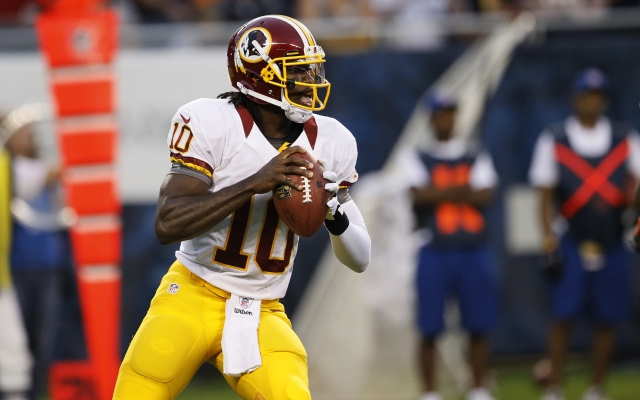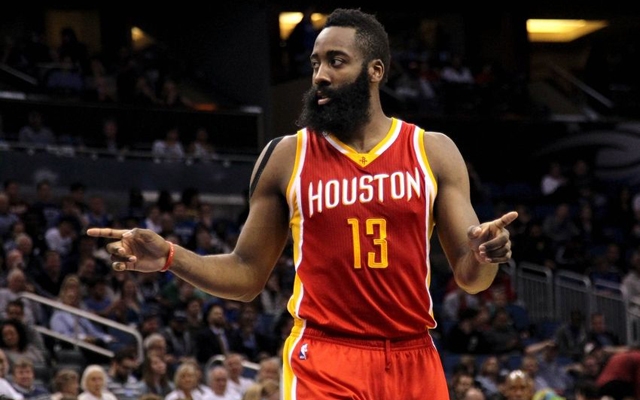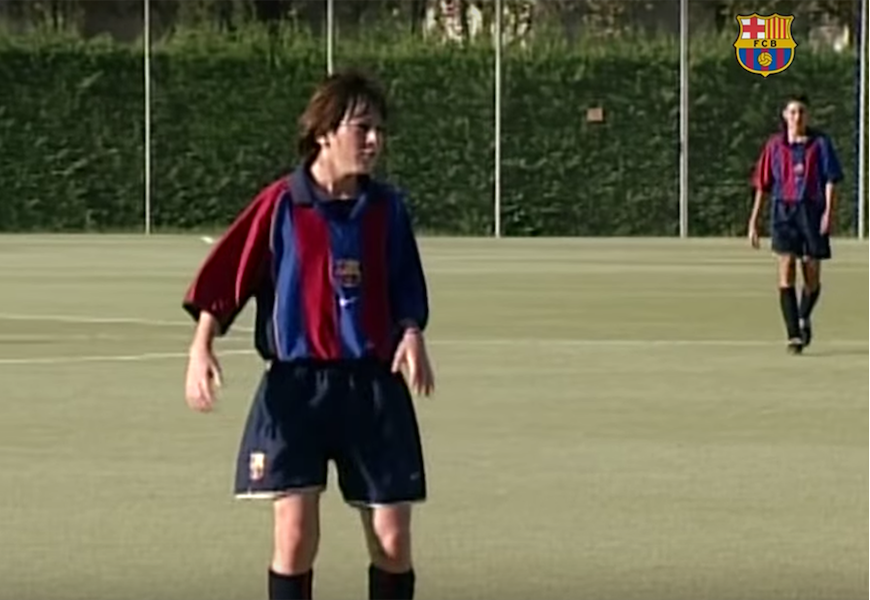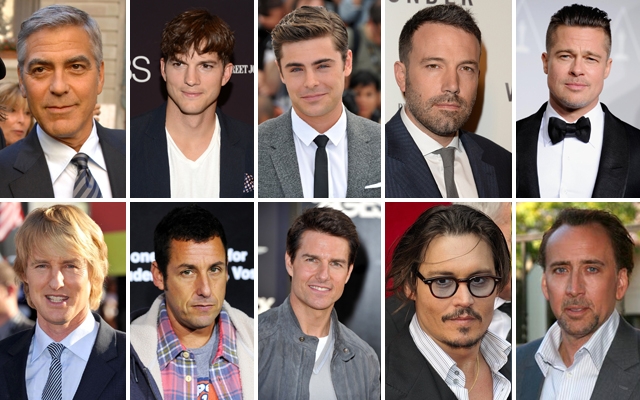Robert Griffin III didn’t say he’s the best quarterback in the NFL, but that doesn’t matter.
The fact that he even used those words in that combination in discussing his play and his approach on the field was enough to set off a two-day Hot Take firestorm where pundits debated whether the Washington quarterback is even in the upper tier of signal callers in the NFL or if he should have even spoken about being the best in the first place.
Except he didn’t say he was the best. What he actually said was that he’s always going to approach the game believing he’s the best, even though there are several other quarterbacks in the league that have accomplished much more than he has to date. It was the standard “If you’re not trying to be the best or don’t believe you’re capable of being the best, you’re doing it wrong” delivered for the umpteenth time, but because RG3 is a high profile talent coming off a couple injury-riddled, underwhelming seasons, it gets re-packaged, repurposed and put in the A-Block of every talking head show on ESPN and dropped onto sports blogs where the clicks just roll in.
As someone that makes his living interviewing professional athletes and writing about sports (mostly), it’s beyond disappointing. In the Venn Diagram to explain how seeing this happen makes me feel, the “take something completely out of context to generate traffic and pointless debate” tactic falls in the area where embarrassing, frustrating and unprofessional overlap.
There’s no reason for this stuff to happen. None. Zero. Every time this transpires, my first thought after the anger subsides is “And you wonder why athletes want no part of dealing with the media and don’t say much of anything useful when they do.”
Athletes need to know that journalists are going to convey what they said accurately. No spin, no twists; just what they said and how they said it. Question and answer, simple and plain. You can mold it into a feature story with a narrative and texture, but misrepresenting what was said kills the unspoken agreement between interviewer and subject and is going to make that athlete want to be more guarded and less giving the next time they speak with the media.
Unfortunately, that doesn’t seem to matter that much any more.
In the digital age, where clicks count more than anything else and websites grab quotes and content from wherever they can find it in exchange for a hyperlink, getting it first is valued over getting it right and accurately conveying what an athlete said is less important than delivering an SEO-friendly headline.
Are there still outstanding, responsible journalists out there on the Internet? Absolutely, but sadly it feels like those numbers are dwindling each year.
For every journalist actually working a beat and building relationships, there are three or four people sitting at home, poaching content and trying to meet their traffic targets each month who have no qualms about grabbing the quotes someone else put the effort into collecting, transcribing and publishing. If you’re lucky, they’ll give you a hyperlink in return.
And more and more, quotes are being twisted and turned into Hot Take fodder for shows like Around the Horn and Pardon the Interruption or innumerable blogs that know a “Robert Griffin III says he’s best QB in NFL” headline is going to generate a ton of traffic, even if that’s not exactly what he said.
Getting the clicks and getting people talking is all that matters, even if what brings them to your website or starts the conversation is a misrepresentation of what someone said.
That needs to change or else athletes are never going to say much more than “both teams played hard” and “I’m looking forward to getting out there and competing.”
The response can’t be “Well RG3 shouldn’t even be talking about believing he’s the best in the game anyway” either because that’s what we ask of athletes all the time. We kills them when they don’t put themselves in the elite group and skewer them whenever they say they are.
You know what’s easier than trying to outline what athletes should and shouldn’t say? Relaying what the say accurately and going from there. Chances are you’re still going to get a couple good talking points, a headline that makes Google happy and plenty of traffic and it will have come without misrepresenting what was said.












